-
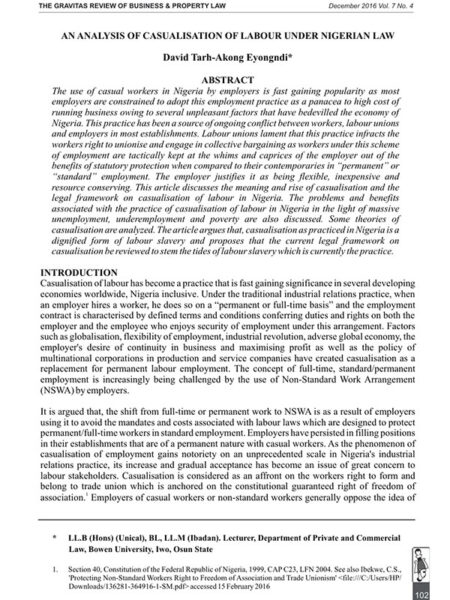
An Analysis of Casualisation of Labour under Nigerian Law
0₦2,500.00David Eyongndi of the Faculty of Law, Bowen University, Iwo, Osun State in his article, “An Analysis of Casualisation of Labour Under Nigerian Law” examines the use of Non-Standard Work Arrangement (NSWA) otherwise called ‘Casual Labour’ in Nigeria. He considers the rise, causes, effects and legal framework on casualisation. He argues that NSWA may not be as bad as it first seems, as it serves as a springboard for some workers to acquire necessary skills and experience to improve their permanent employability prospects. He recommends a regulation of the practice for the benefit of all stakeholders.
-
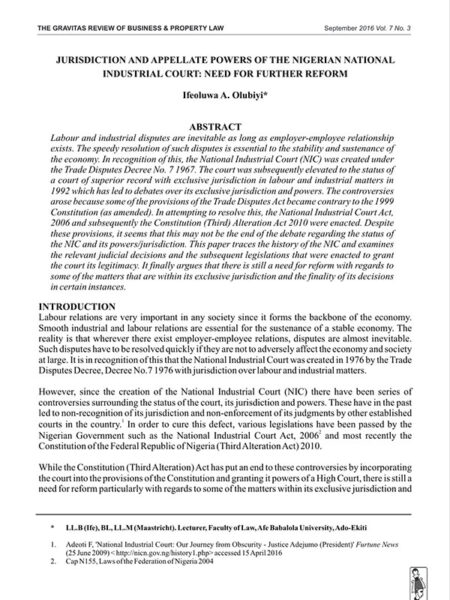
Jurisdiction and Appellate Powers of the Nigerian National Industrial Court: Need for Further Reform
0₦2,500.00Ifeoluwa Olubiyi, Lecturer, Faculty of Law, Afe Babalola University, Ado-Ekiti, in her article “Jurisdiction and Appellate Powers of the Nigerian National Industrial Court: Need For Further Reform” undertakes an historical analysis of the jurisdiction and status of the National Industrial Court as a court of record. She posits that while the Constitution of the Federal Republic of Nigeria (Third Alteration) Act 2010 may have put an end to some of the controversies surrounding the jurisdiction of the court, the finality of its decision, ‘exclusive jurisdiction’ in child labour, child abuse and human trafficking cases, and application of international treaties without domestication may be contrary to other sections of the Constitution.
-
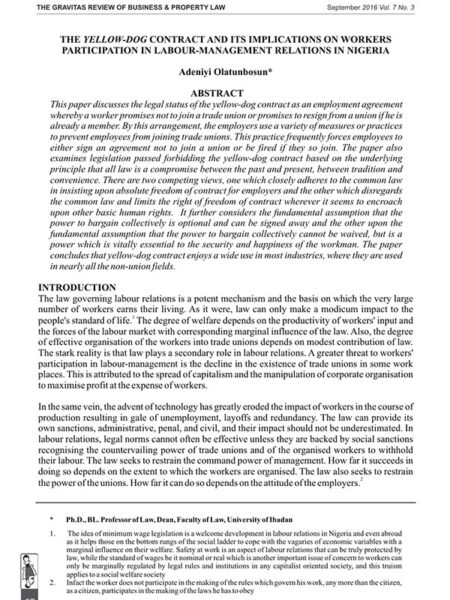
The Yellow-Dog Contract and its Implications on Workers Participation in Labour-Management Relations in Nigeria
0₦2,500.00Professor Adeniyi Olatunbosun, Dean, Faculty of Law, University of Ibadan in “The Yellow-Dog Contract and Its Implications on Workers Participation in Labour-Management Relations in Nigeria” discusses the legal status of the yellow-dog contract as an employment agreement whereby a worker promises not to join a trade union or promises to resign from a union. He examines statutory provisions prohibiting workers from joining a trade union and those forbidding the yellow-dog contract. He explores two competing views, one which adheres to the common law in insisting upon absolute freedom of contract for employers and the other which limits the right of freedom of contract wherever it seems to encroach upon other basic human rights. He concludes that the yellow-dog contract enjoys a wide use in most industries, where they are used in nearly all the non-union fields.
-
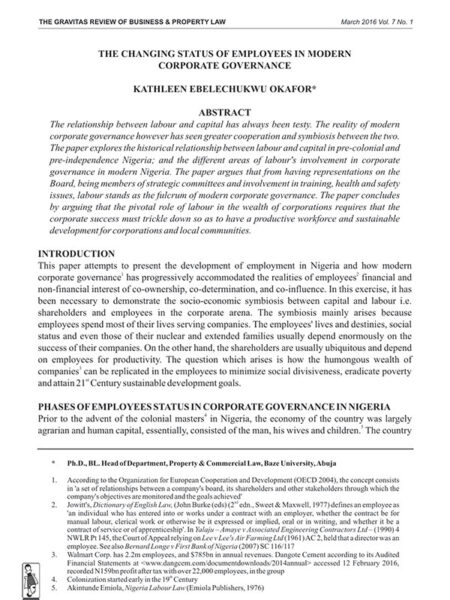
The Changing Status of Employees in Modern Corporate Governance
0₦2,500.00Dr Kathleen Okafor, Head, Department of Property & Commercial Law, Baze University, Abuja examines “The Changing Status of Employees in Modern Corporate Governance». She posits that modern corporate governance has seen greater cooperation and symbiosis between labour and capital which has accommodated the realities of employees’ financial and non-financial interest of co-ownership, co-determination, and co-influence. She explores the different areas of employees’ involvement in corporate governance and concludes that the pivotal role of labour in the wealth of corporations requires that the corporate success must trickle down for sustainable development of corporations and local communities.
-
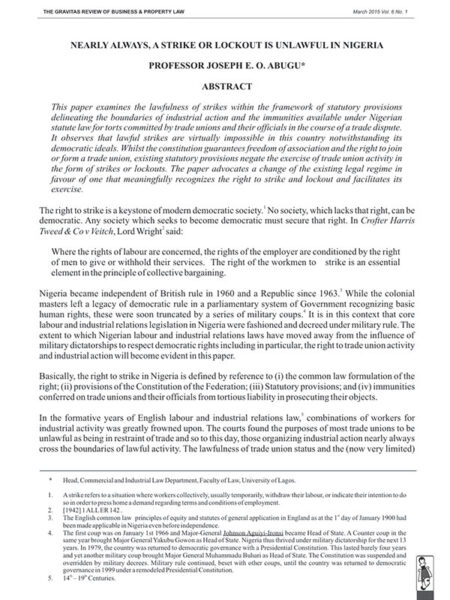
Nearly Always, A Strike or Lock Out is Unlawful in Nigeria
0₦2,500.00Professor Joseph Abugu, Head, Commercial and Industrial Law Department, Faculty of Law, University of Lagos examines the lawfulness of strikes within the framework of statutory provisions delineating the boundaries of industrial action and the immunities available under Nigerian statute law for torts committed by trade unions and their officials in the course of a trade dispute. It observes that lawful strikes are virtually impossible in this country notwithstanding its democratic ideals. Whilst the constitution guarantees freedom of association and the right to join or form a trade union, existing statutory provisions negate the exercise of trade union activity in the form of strikes or lockouts. The paper advocates a change of the existing legal regime in favour of one that meaningfully recognizes the right to strike and lockout and facilitates its exercise.
The Gravitas Review of Business & Property Law



